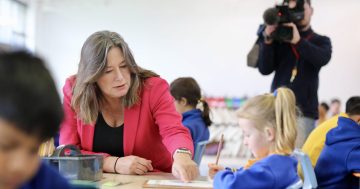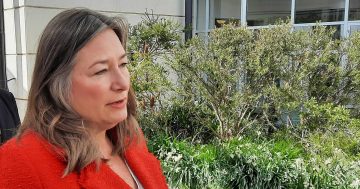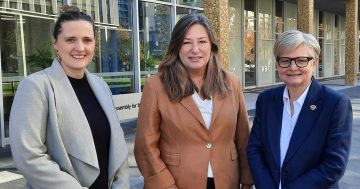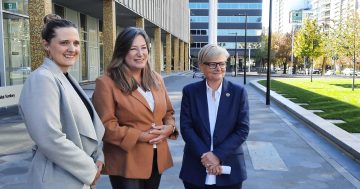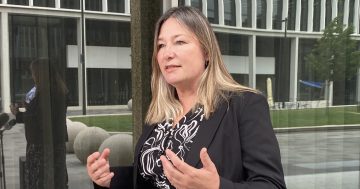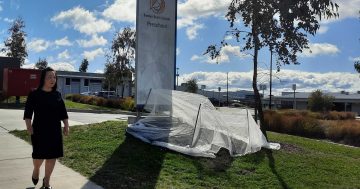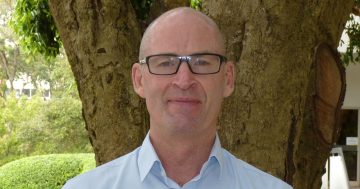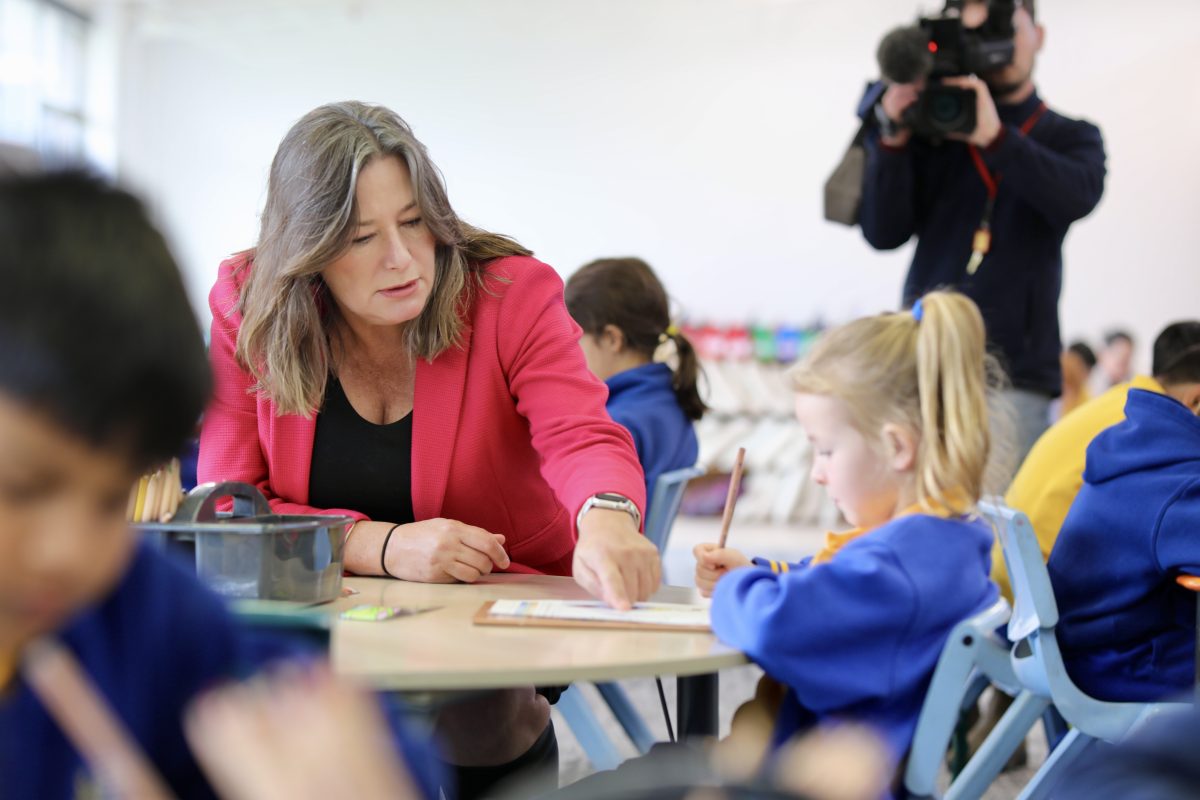
Minister for Education Yvette Berry remains upbeat about public school enrolments and changes to come. Photo: Supplied.
For Education Minister Yvette Berry, whatever the parent feedback, the statistical studies and recommendations from an independent expert panel say, the Territory’s public schools are still delivering a great education.
They just need to change with the times now the evidence is finally pointing to decades of flawed practices in the classroom.
Some parents can’t afford to wait.
The latest School Census figures show a continuing leak of public enrolments in recent years, while non-government schools have prospered.
Changing demographics and birth rates are playing a role, with the losses this year confined to pre-school and primary school years, but in a growing city in the middle of a cost of living crisis, one would expect the public school system to hold its own or still grow.
The ongoing growth in non-government schools shows that a number of families are looking for more than the public sector can offer them, as well as the disenchanted seeking an education for their children that works.
The latter group tell a common story – their kids were not learning, they needed more structure, values were not aligned and schools were unresponsive.
Schools can’t be all things to all parents and students, but these were things that many submissions to the literacy and numeracy inquiry also raised, along with inconsistencies across the system.
The family Region talked to was not seeking an elite education for their children but the basics taught properly in a structured environment, something that should be the bread and butter of a public school.
Faddish classroom approaches such as “flexible furniture” that left their Year 2 son adrift should be one of the things to go when the Directorate rings in the changes recommended in the report.
It may be Ms Berry’s job to defend government schools publicly, but she does get herself in a tangle talking about it.
On one hand, kids are still getting a great education, but change is coming, and it will be “significant”.
Why? Because the experts have finally stated the so-called “great education” is not really that great.
For Ms Berry, some schools are already changing while others are not so progressed. That’s part of the problem. It seems to be driven by postcodes and parents, not the Directorate.
Ms Berry also likes to focus on how teachers will have less of a workload, freeing them up to focus on teaching.
“Our schools are excited about the opportunity to make changes that will particularly assist teachers,” she said last Thursday (4 July) when asked about the census.
That plays well with the teachers’ union, but parents might be asking for a bit more attention on their children.
But there is hope that the public system can find lessons in what is working in non-government schools and collaborate.
Ms Berry suggested that the different education sectors did not have to compete with each other.
“Catholic and non-government schools and public schools work pretty closely together,” she said.
“We’ve shown we can do that really well, particularly during COVID.”
It would be good if the government could be more candid about the issues confronting public schools and acknowledge families’ experiences.
The first step in restoring the fortunes of public schools and the confidence of parents is to admit something is wrong and show a determination to fix it.
The Budget funding of $25 million over four years – some say it should have been more – for the Strong Foundations literacy and numeracy initiative is a down payment on change.
Let’s hope it’s not too little too late.













